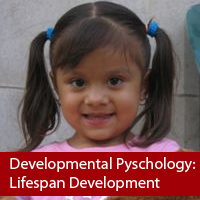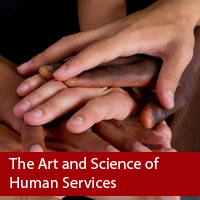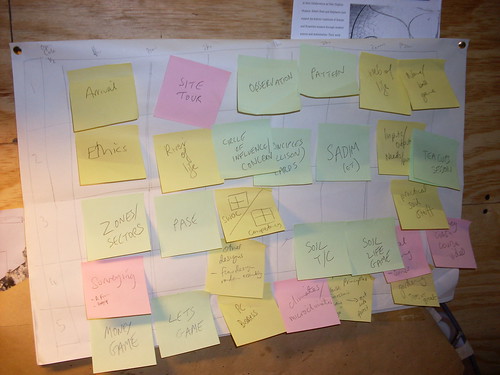 Three Elon psychology faculty have created 15 modules and an annotated resource guide to teaching about how culture and context affect psychological development. These materials were used in one section of Lifespan Development (PSY 240) in the Spring 2012 semester and will be tested in a more formal pilot during the Fall 2012 semester.
Three Elon psychology faculty have created 15 modules and an annotated resource guide to teaching about how culture and context affect psychological development. These materials were used in one section of Lifespan Development (PSY 240) in the Spring 2012 semester and will be tested in a more formal pilot during the Fall 2012 semester.
Category Archives: Uncategorized
Diversity Infusion Project: Developmental Psychology
Inclusive Classrooms: Handling hot topics
 “Hot moments” may come up during class due to controversial course content or simply due to interpersonal dynamics in a classroom filled with unique individuals. Before opting to simply ignore unpleasant classroom interactions, faculty might want to consider how they can help equip students to be engaged global citizens capable of interacting with people who are different from one another or those holding conflicting views.
“Hot moments” may come up during class due to controversial course content or simply due to interpersonal dynamics in a classroom filled with unique individuals. Before opting to simply ignore unpleasant classroom interactions, faculty might want to consider how they can help equip students to be engaged global citizens capable of interacting with people who are different from one another or those holding conflicting views.
Among others, Lee Warren of Harvard’s Derek Bok Center for Teaching and Learning offers some tips for handling these tricky moments, including:
- Probe more deeply, but keep the focus on learning and understanding, not winning an argument.
- Help students tolerate discomfort and expect that they won’t always be able to come to consensus.
- If they can’t figure out a way to deal with the issue in that moment, the professor might tell students this seems like an important issue she or he would like to take up at a later time. That lets students know s/he has noticed and takes the issue seriously but also provides time to plan strategies, perhaps ones that include providing resources that frame the controversy. Continue reading
Travel Grants: Ayesha Delpish presents at the 2011 Joint Statistical Meeting
 From 2009-2011 Associate Professor Ayesha Delpish served as a CATL Scholar conducting research around teaching methods for statistics. Her project titled “Towards a Community of Learners: A Case Study Approach to Statistics” focused on investigating the impact of an inquiry-based approach to teaching different statistics courses.
From 2009-2011 Associate Professor Ayesha Delpish served as a CATL Scholar conducting research around teaching methods for statistics. Her project titled “Towards a Community of Learners: A Case Study Approach to Statistics” focused on investigating the impact of an inquiry-based approach to teaching different statistics courses.
In particular, Professor Delpish’s project aimed to transform one of Elon’s core classes, MTH212: Statistics in Application. By using real-world case studies, she created opportunities for students to work in teams to collaboratively build statistical fluency, critical thinking and problem solving skills. Using case studies helped to address the challenges of teaching groups of students from diverse majors by encouraging students to see “real life” applications for the statistical methods they were learning. Continue reading
Diversity Infusion Project: Introduction to Psychology
 Six faculty worked through the 2011-2012 academic year to create topic-specific units to infuse diversity into the Introduction to Psychology (PSY 111) curriculum and to develop a compendium of resources for faculty who teach this course. By creating course materials that better reflect the diversity of human experience, these faculty hope to enhance students’ understanding of psychology. Continue reading
Six faculty worked through the 2011-2012 academic year to create topic-specific units to infuse diversity into the Introduction to Psychology (PSY 111) curriculum and to develop a compendium of resources for faculty who teach this course. By creating course materials that better reflect the diversity of human experience, these faculty hope to enhance students’ understanding of psychology. Continue reading
Inclusive Classrooms: What an inclusive classroom is and is not
 The goals of an inclusive classroom should not be creating a comfortable space, making students feel good about themselves, or ending each class meeting with a group hug.
The goals of an inclusive classroom should not be creating a comfortable space, making students feel good about themselves, or ending each class meeting with a group hug.
In fact, learning and applying new ideas and skills, thinking deeply, grappling with complex issues and situations should be challenging, which doesn’t necessarily make students feel comfortable or good. The main goal of an inclusive classroom, like all others, should be about increasing student learning – the learning of all students.
Most of the practices that are seen as promoting “inclusive classrooms” are simply what are known to be good teaching practices. Students are more likely to take intellectual risks when there are clear goals and expectations, supportive and well-designed instruction, and a respectful learning environment. Faculty can be more effective when they recognize what students bring (and don’t bring) to the classroom in terms of background skills and knowledge in a content area and also the ways their culture and identities may affect them.
Diversity Infusion Project: The Art and Science of Helping
 Three Human Service Studies professors are collaborating to infuse The Art and Science of Helping (HSS111) curriculum with a concentration on the importance and implications of human difference. Students now will complete the course with both deeper self-awareness of their own perspectives and significant practice understanding and adopting the perspectives of others.
Three Human Service Studies professors are collaborating to infuse The Art and Science of Helping (HSS111) curriculum with a concentration on the importance and implications of human difference. Students now will complete the course with both deeper self-awareness of their own perspectives and significant practice understanding and adopting the perspectives of others.
Inclusive Classrooms: Inclusive course design
 Although any faculty member can be attentive to pedagogy and how to set up an inclusive classroom environment, some courses can make their course content more explicitly multicultural. Ideally, this means more than just a one-day “add-on” or token “nod to diversity” so that diversity is “infused” into the course at its foundation.
Although any faculty member can be attentive to pedagogy and how to set up an inclusive classroom environment, some courses can make their course content more explicitly multicultural. Ideally, this means more than just a one-day “add-on” or token “nod to diversity” so that diversity is “infused” into the course at its foundation.
As you are redesigning a course, keep in mind that you can:
- Share with students how recent scholarship – perhaps about gender, race, sexual identity, global perspectives, etc. – may have changed your field of study in recent years.
- Think about the opportunities your course content offers in terms of topics to be covered, types of case studies or examples used, application of theories, evidence, readings and authors, and the types of thinking you want to encourage.
- Investigate what leaders in your discipline/field are doing to infuse diversity into their curriculum. If you’re serious about redesigning your course, check out the Diversity Infusion Project. Continue reading








 Follow
Follow